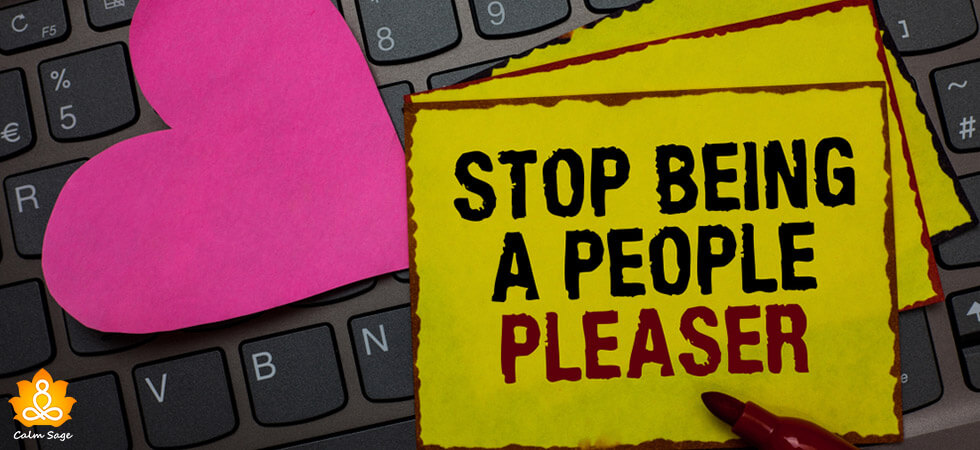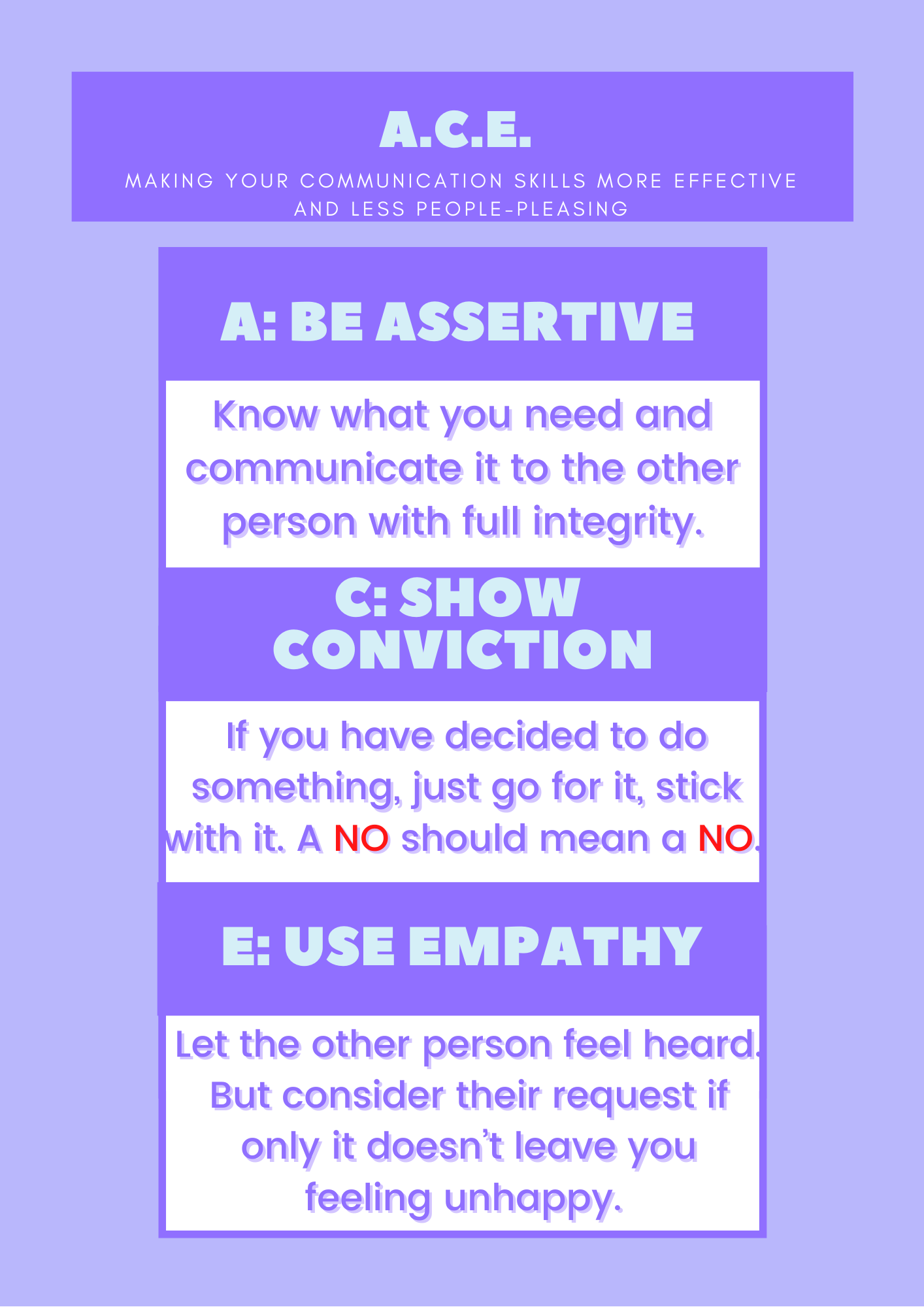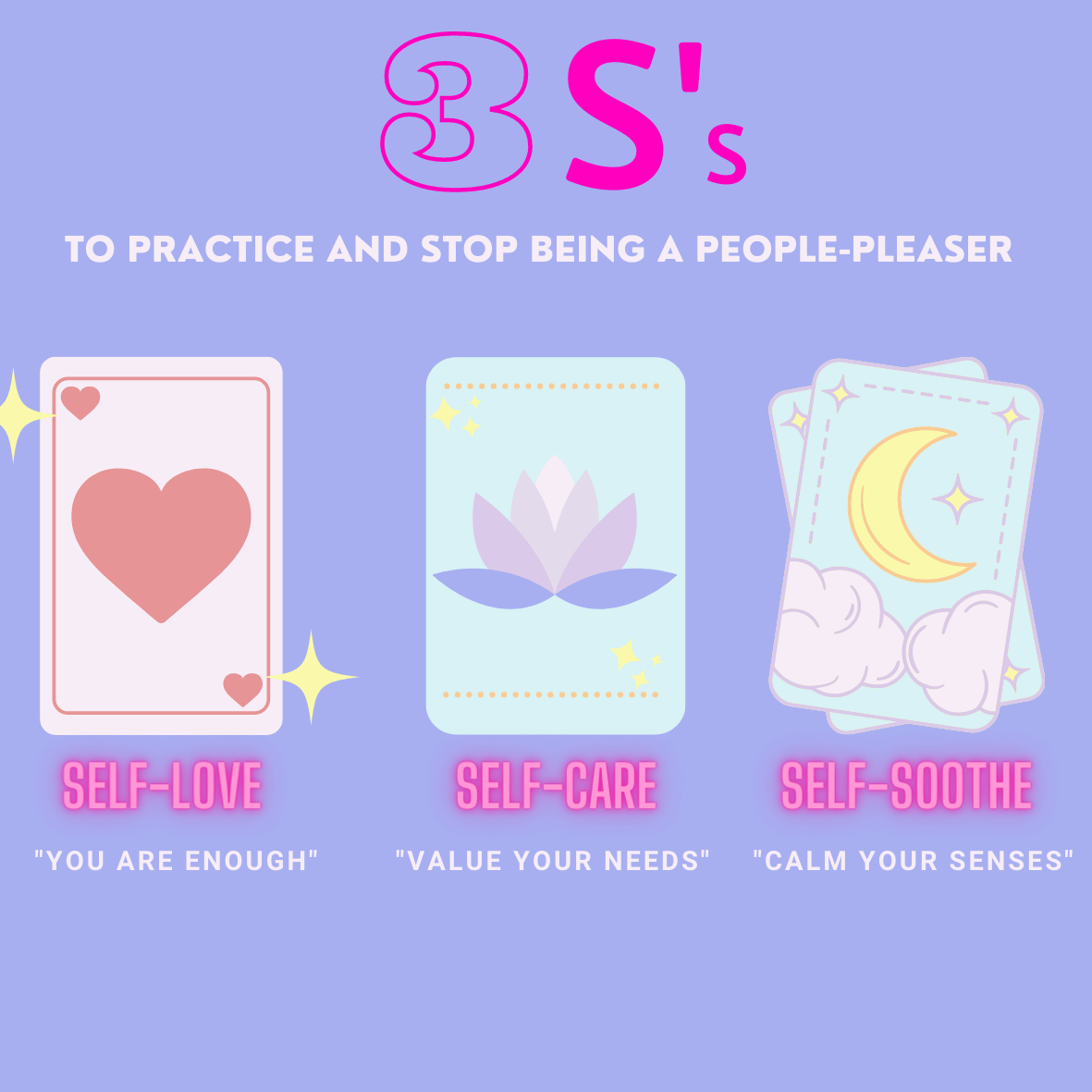10 Ways to Stop Being A People Pleaser For Your Own Good

Have you been putting others over yourself for quite a while now? If yes, then you might want to reconsider your habits as you might be swirling in the loop of people-pleasing behaviors.
Which, my friend, you need to stop! You need to stop putting your true self aside. You need to stop hiding beneath the surface as it won’t do anyone any good.
In fact, people-pleasing at one point becomes nothing more than an addiction. Needless to mention addiction of any form tempers your mental, emotional and physical health. Perhaps, it should be stopped and taken care of! That’s why to protect you from the negative side of people-pleasing we are sharing 10+ effective ways to stop being a people-pleaser.
10 Ways to Stop Being a People Pleaser
1. Start it Small (But Start it Soon)
The famous behaviorist John Watson has rightly said that what is learned can simply be unlearned if it is becoming unacceptable. Similarly, if your behavior of being a people-pleaser has now become a part of your personality or lifestyle it is recommended that you should simply unlearn it.
While doing so make sure that you are gentle with yourself and understand the fact that it took years for it to build, therefore, it will take days, months, or even years for it to be out of your life.
Think of it as a process, and take one step at a time. Ultimately, you will find yourself moving out of this constant urge of putting others over you. Hey, but don’t forget to start taking these steps!
2. Say “NO” Firmly

Putting oneself over others is a classic sign of people-pleasing. To make it work a people pleaser often finds himself in situations where he will end saying YES even when he does not want to. It seems like the word NO doesn’t exist in their life, making their boundaries vague and leaving you thinking why I agreed to that!
Social psychologist Susan Newman says,
“We only have so much emotional and physical energy.”
She further adds,
“Agreeing to too many obligations puts you at risk for the stress and anxiety that comes from completing all you’ve committed to. Over-commitment can exhibit itself in your being short-tempered with someone who doesn’t deserve it, for instance.”
Perhaps, it is advised that you learn to say No and set clear boundaries. If you can’t say a NO upfront, take small steps and come up with phrases that could postpone the situation for you.
Understanding it with a few examples:
Situation 1: “Would you like pizza?”
The response you wish to give: No.
The response you end up giving: “Yes.”
Healthy alternate response: Thank you for asking but I am full.
Situation 2: “Are you free on Saturday night?”
The response you wish to give: No, I’m watching Spiral.
The response you end up giving: “Yes.”
Healthy alternate response: That is really sweet of you to ask, but I already have plans. Maybe some other time?
That was smooth! Wasn’t it? Plus, you aren’t hurting anyone’s feelings by firmly denying and creating healthy boundaries. It is vital for your overall well-being and happiness.
3. Refine Your Apologies
“Sorry.”
“Oh, I am so sorry.”
“Please accept my apologies!”
If it sounds like a script from your day. You need to stop pleasing people by first working on the amount of sorry you say!
No matter whose fault it is or whether the situation needs an apology, a people pleaser is always standing with an “I am sorry” card. Over apologizing and being sorry for others’ mistakes make people-pleasers serial apologists.
Next time if you have the urge of saying sorry give it a pause and ask yourself: Am I really at fault for this situation? If you hold yourself accountable and responsible for the same, go out there and say Sorry. But if your response to this question is a maybe or NO keep that sorry save with you and use it next time when your answer is YES!
Knowing when to apologize will help you twofold. Firstly, it will create room in your life wherein you will let others take responsibility for their life. Secondly, it is a way to create healthy boundaries in your life.
4. Make Healthy Boundaries (Stick with Them)
In our discussion so far I have time and again focused on creating healthy boundaries, do you wonder why? Well, healthy boundaries are the best anecdote for overcoming people-pleasing tendencies. We all have our own limits and going beyond them tempers our happiness.
You may think of boundaries as a safe space around you every time someone steps on it you are likely to feel suffocated and frustrated. That is why it is suggested to create healthy boundaries and stop people-pleasing here are some tips for you:
1. Be clear in communication, say what you are thinking and what you want. Make sure it is in line with your boundaries, your limits. You don’t have to go out of your way to be nice to others (every day).
2. Think of what allowing others to trespass your boundary holds for you. This can be achieved by simply asking yourself 3 questions before mending or breaking your boundaries for anyone.
- How will you feel about the request made?
- Does agreeing to this request mean putting your needs in the back seat?
- How will I feel after offering help?
If the responses tick marks the positive checkboxes then go ahead and offer help, but if it costs your positive mental health it is advised to refuse the request firmly.
5. Be Honest; Stay Authentic
Do you know why the field of psychology emerged in the first place? To understand and value individual differences. In fact, the uniqueness of an individual is his most privileged possession and the beauty of his life. Then why is it taken away? So it is recommended that instead of hiding your authentic self just to be liked by others, we take pride in who we are and acknowledge our unique needs.
If your viewpoint does not match the other person it is fine! Take ownership of how you feel and disagree with what doesn’t align with your happiness. Keep in mind that you are unique and be honest with your unique self.
6. Realize It is OKAY to not be EVERYONE’s Cup of TEA
Take a deep breath in and repeat with me “I am not everyone’s cup of tea.” Phew! How liberating did this one simple statement make you feel? Works pretty great, right? Now imagine making it a lifestyle!
So what I am trying to say here is that you, my friend, should create your own mantra like the one I just shared with you. Every time you think your actions are directing people-people tendencies which you need to stop, just think of a mantra and recite it. This will help you reflect on what you are doing and give you an insight into what you should be doing instead. Within a few days, you will see yourself smoothly drifting away from people-pleasing behavior.
7. Be Assertive
Often a person with people-pleasing behavior ends up doing so because the effective way to communicate their needs or viewpoint is not known to them. Therefore, instead of communicating what they want they just take a safe move of agreeing to the other person. Well, if this sounds familiar to you, here is your chance to work on it. Simply play the ACE card! Let me break down this term to you:
A: Assertiveness
C: Conviction
E: Empathetic
By adding these three elements to your communication, you will be able to listen, respect, and respond to not only others’ needs but to yours too. Use the graphic below as your guide and see your habit of people-pleasing leaving you in no time.

8. Stop Seeking Validation from the Outside World
“Pleasing others and being seen as good provides the security, pleasure, and status that we all seek to let us know we are safe, good, and worthy.” ~Scott Rower, Psychologist
Let us clear one basic concept that your self-worth stems from you! So if you are pleasing others just to feel good about yourself, you might have chosen the wrong route to achieve it. The source of feeling good and worthy resides within you.
To find your self-worth you should stop people-pleasing and rather start taking a pill. Yes, a pill of self-validation. Wherein you are validating your actions, emotions, and thoughts for yourself and on your own.
Shutting the doors of external validation is one key step to deal with people-pleasing behavior.
9. Give Yourself A Dose of 3S’s
When you are on the giver side, giving reasons for others to like you, you run out of the fuel to direct these efforts towards yourself. That is why it is important to fuel up your energy and resources so that you can take care of your own needs and that of others (only when required).
To make it work it is suggested that you practice the 3S’s of valuing oneself to practice. These 3S are shared with you below.

By applying these 3S’s you will be able to realize what you want out of your life and your self-esteem is likely to get a boost.
And as Newman said,
“You as a person are entitled to your time and you need to rest and rejuvenate to be there for the people you want to help out.”
Look at these 3S’s as an opportunity to spend your time doing what you value in your life. Remember putting yourself first is not selfish, it is healthy. Just keep your levels in moderation.
Must read:
- Revealed: 9 Warning Signs Of Low Self-Esteem & Lack Of Confidence
- How To Build Self-Esteem In Your Child | Self-Esteem Activities For Children
- How To Cope With Negative Body Image and Falling Self-Esteem
10. Consult a Mental Health Professional
When we catch a cold, we first try to cure it with the help of home remedies but if that doesn’t work, we better be booking our appointments with the doctor. Similarly, even after trying these effective ways to stop being a people-pleaser discussed above if you find it difficult to make it work it is suggested to seek help from a mental health professional.
The long-standing patterns of people-pleasing behavior do become a part of living and need professional help to be eradicated. They will aid in the root underlying your people-pleasing tendencies, make you aware of them, and then further cope with them effectively.
Now it is time for you to apply these ways to your life and stop being a pushover. Remember people-pleasing makes everyone around you happy but not you! And what’s the point of investing your time, efforts, and energy in anything that doesn’t end up making you happy.
If you think that this blog can bring significant changes in someone else’s life don’t forget to share it!
Thank you for reading.
Love & Light!




















